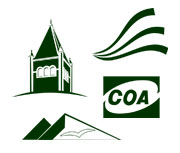 Lakeshia Reid Lakeshia Reid
My Watershed Watch Experience
The Watershed Watch program was the best thing that ever happened to me. It opened my eyes to things that I had never been exposed to and introduced me to people that I can’t see my life without. Looking back, I can appreciate the fact that this program gave me many memorable firsts. However, I was very hesitant in the beginning. The prospect of traveling miles away from home and comfort was one of the reasons why I almost decided not to go.
I had just finished my freshman year, but I still felt out of place among my peers. This immediately made me wonder how I could travel all the way to New Hampshire and feel comfortable. I decided that the opportunity outweighed my apprehension and hopped on the plane. That was my first time flying and I was too proud to have done it by myself.
The area surrounding the University of New Hampshire was not how I expected it to be. Instead of feeling like I was in the north, I felt like I was somewhere down south. There were plenty of trees, farmland, open space, and a town that could be traversed by foot in one day. It was easy to see why the three schools partnered to form this opportunity. The environment was an intriguing change of pace. It brought me new friendships that I still cherish to this day; with each person holding a tremendous amount of my trust and respect.
Within the first few days of working in the field, I began to wonder why I was not a science major. The many hands on activities and the things that we learned that pertained to them were unmatched by anything that I had done in my current field of study. I remember being taken out on a canoe into the middle of the lake. I was out of my element and I was afraid, yet the material being covered was too fascinating for me to have passed the opportunity up. That’s exactly how it was everyday of the Watershed Watch experience; fears, no matter how large, were put in the past in order to gain something wonderful to talk about in the future.
The best part of the program by far was when we took the trip up to Mount Moosilauke. Having never seen a mountain or fathomed hiking it conjured up a lot of unexpected nervousness, but my peers and I were beyond ecstatic. I cannot express with words the mutual groan that was emitted when my peers and I found out three things; our cell phones were going to be useless, we had to walk all the way up to the lodge for the restrooms and food, and that there was no internet.
The mountain had to have been the biggest obstacle I have ever faced. We had breakfast, posed for a few photos and then we were off to climb it. It was interesting to see how many people decided to head back to the lodge as we progressed. This part of the trip was full of practical applications of all the things we had learned. The research that I conducted looked at the effect that different elevations had on a tree health and growth. To do this, we took a few samples of tree cores from three different elevations on Mount Moosilauke and compared them. We worked and hiked. The group began to be more spread out along different intervals, and it was pretty much three of us from ECSU and Professor Yuan against the mountain. This was the point where the most motivation was needed and I was glad that I had that support system. Though we were hot, tired and low on food it did not seem as though we were ascending until the reality hit; its peak. Standing at the top of the mountain looking down on what we’d accomplished was the best feeling in the world. It was a hard journey, but it was most definitely rewarding in many aspects. With many memorable firsts and memories it is something that I will be glad to have been a part of for the rest of my life.
|